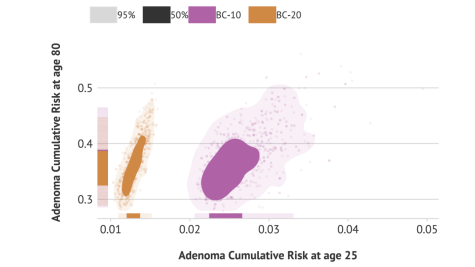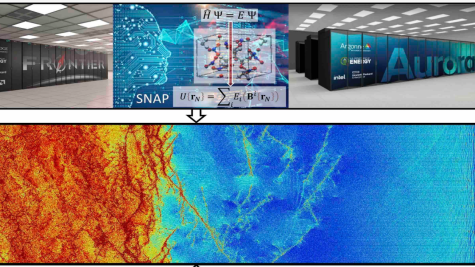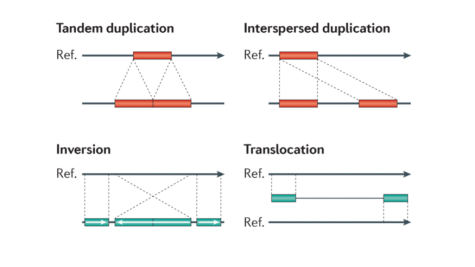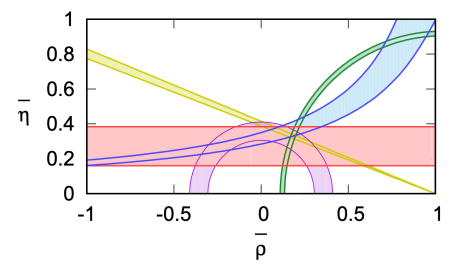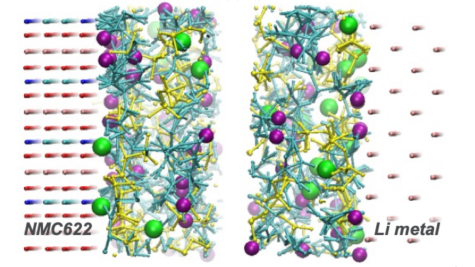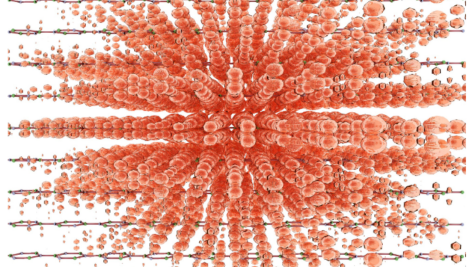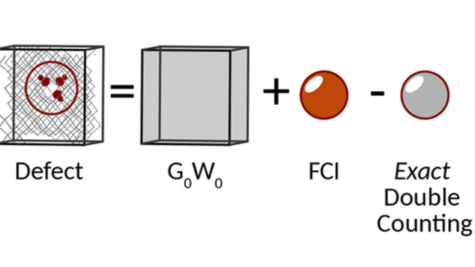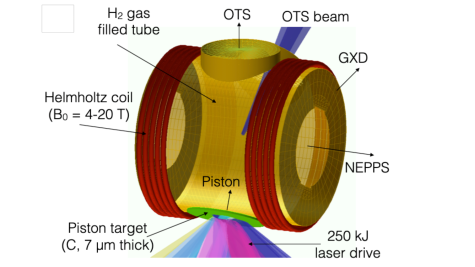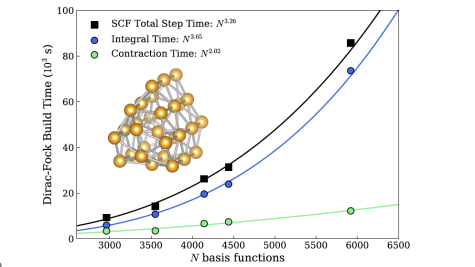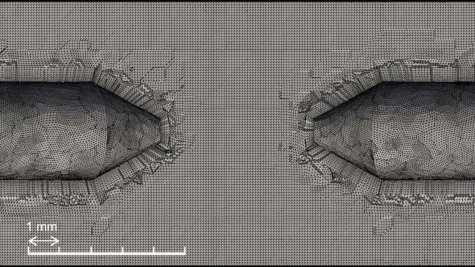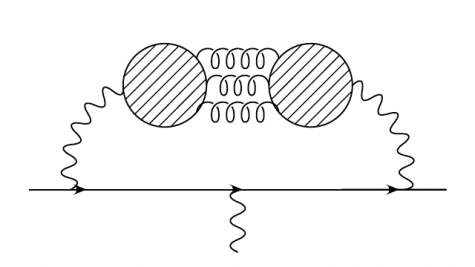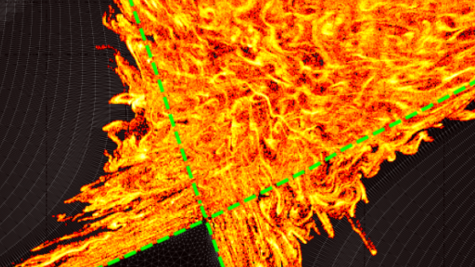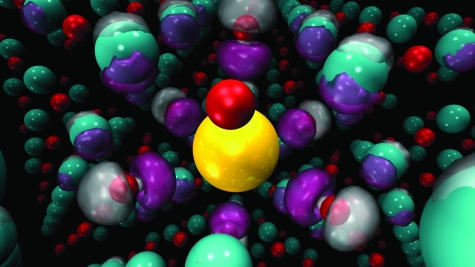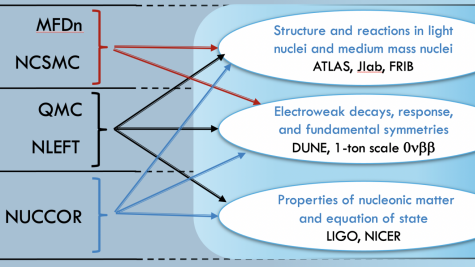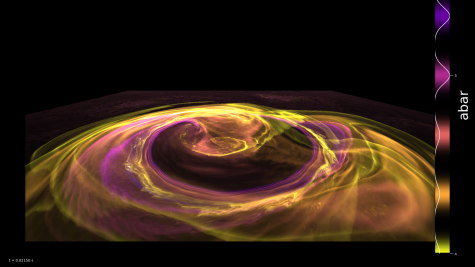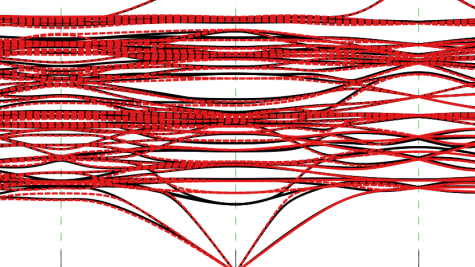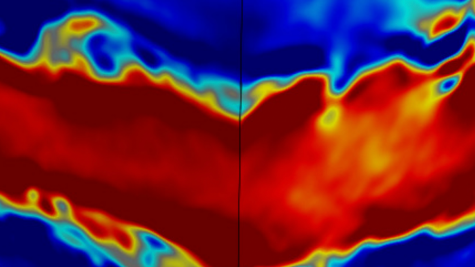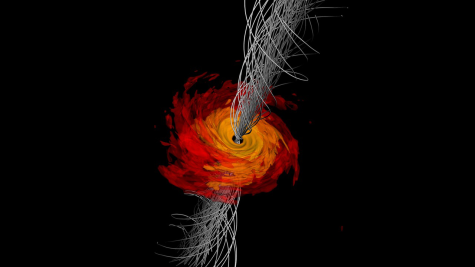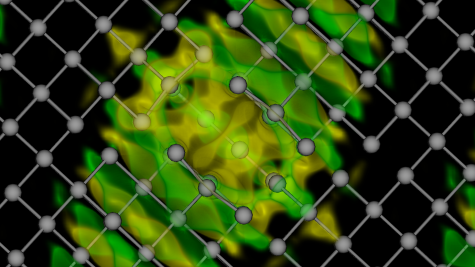ALCF projects cover many scientific disciplines, ranging from biology and physics to materials science and energy technologies. Filter ongoing and past projects by allocation program, scientific domain, and year.
Probabilistic Comparative Modeling of Colorectal Cancer Screening Strategies
This project will use leadership class computing resources to run comparative probabilistic sensitivity analyses (PSAs) of screening strategies with three state-of-the-art CRC models.
High Energy Density Physics of Inertial Confinement Fusion Ablator Materials
This ALCC project will perform machine learning molecular dynamics simulations at DOE exascale Frontier and Aurora supercomputers at experimental time and length scales to uncover complex response of a-C ablators under dynamic compression and guide experiments to observe predicted phenomena and validate our theoretical models.
Scaling Genomic Variant Callers to Leadership-Class Systems: A Collaboration Between VA-MVP and DOE
This project builds upon the strategic partnership between the US Department of Veterans Affairs (VA) and DOE in leveraging DOE computing capabilities to enhance the health outcomes of veterans through the MVP-CHAMPION (Million Veteran Program Computational Health Analytics for Medical Precision to Improve Outcomes Now) project.
Continuum Limit Lattice Calculation of Direct CP-violation in Kaon Decays
This research team, along with other members of the RBC & UKQCD collaborations, performed the first complete lattice calculation of the decay in 2015, and in 2020 published an improved result with significantly better control over the systematic errors.
Microscopic Insight into Transport Properties of Li-Battery Electrolytes
This research is aimed at using large-scale, high-performance computing to assist discovery of novel batery electrolytes to enable rational design of superior electrolytes for high voltage batteries.
Using GPU to Reconstruct LHC Collisions Recorded with the CMS Detector
This team set out to use GPU resources at ALCF including Polaris and Aurora to identify the fundamental constituents of matter, to precisely measure the forces between them, to identify new symmetries, and to search for dark matter.
Computational Design of Novel Semiconductors for Power and Energy Applications
To investigate the optical and transport properties of halide perovskites and plasmonic ceramics, this team is developing advanced computational methods to examine diverse materials classes of immediate interest for solar photovoltaics.
Large Scale Simulations of Materials for Quantum Information Science
This team set out to carry out large-scale quantum simulations of point-defects forquantum information science.
Energy Partition and Particle Acceleration in Laser-Driven Laboratory Magnetized Shocks
This ALCC project will perform large-scale first-principles fully-kinetic simulations of magnetized collisionless shocks in HED laboratory plasmas to address important longstanding questions associated with energy partition and particle acceleration.
Relativistic Quantum Dynamics in the Non-Equilibrium Regime
This research aims to address a growing need in the computational chemical sciences for accurate first-principles descriptions of the relativistic quantum dynamics of many-electron systems.
Two-Phase Flow Interface Capturing Simulations
This project sets out to resolve the existing challenges in predictive capabilities of two-phase flow and heat transfer by utilizing interface capturing methods and direct numerical simulation to perform state-of-the-art large-scale simulations two-phase flows.
Hadronic Contributions to the Muon G-2 from Lattice QCD
To resolve the difference between lattice and data-driven theory values and compute the total, additional lattice calculations are needed. This team set to attain this goal through two independent groups, Fermilab/MILC and RBC/UKQCD.
Exascale Simulations of Quantum Materials
Through this INCITE project, a team of researchers proposes to apply quantum Monte Carlo (QMC) methods to provide reliable materials predictions for several classes of quantum materials of tremendous topical interest.
Ab-initio Nuclear Structure and Nuclear Reactions
With this INCITE project, the researchers will lead to improvements in the simulation capabilities of atomic nuclei and nuclear matter, and their reactions with neutrinos and electrons.
Exascale Models of Astrophysical Thermonuclear Explosions
This INCITE project uses the team's Castro code to carry out high-performance, robust, and accurate simulations to advance our understanding ofXRBs and SN Ia, pushing to model a larger fraction of the neutron star surface.
High-Throughput Calculation of Materials Properties at Finite Temperature
With this INCITE project, the researchers aim to address the above-mentioned limitations of currently available computational materials databases by vastly extending the range of materials properties such databases contain.
Electron Kinetic Plasma Physics of Black Hole Accretion Flows
The work in this INCITE project takes a critical step toward understanding the behavior of black holes in the universe.
Radiation-Dominated Black Hole Accretion
With this INCITE project, the team will perform the first calculations of radiation-dominated accretion on black holes using full transport methods and realistic opacities.
First-Principles Electron Dynamics in Complex Systems
With this INCITE project, researchers are using new advancements in real-time time-dependent density functional theory (RT-TDDFT) to reliably study high-impact scientific questions associated with the dynamics of electrons and ions in complex heterogeneous systems.
